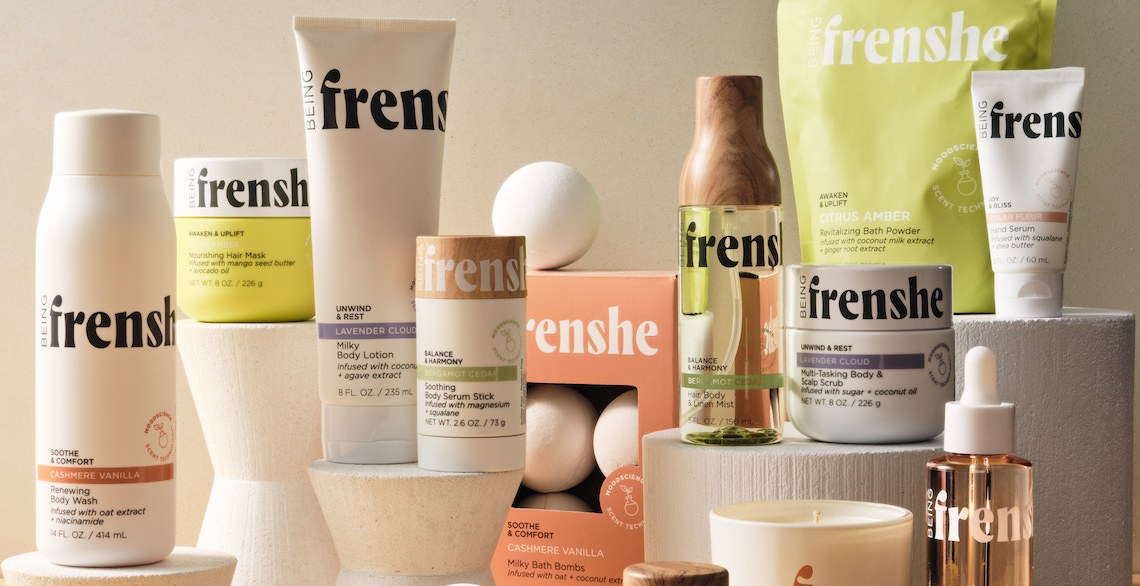Beauty brand incubator Maesa has started 2023 with a bang, bringing in a new C-Suite and launching two fragrance brands over the past two months.
Back in Sept. 2022, Maesa appointed Piyush Jain as CEO. He replaced Gianni Pieraccioni, who left the business for personal reasons. But further hires began in 2023. In February, Carlos Lagravere was appointed COO and Sharon White was appointed chief people officer. In March, Oshiya Savur was appointed chief brand officer, plus Erin Keating was announced as chief customer officer, effective May 8. All positions previously existed, with the new C-Suite comprising alumni from conglomerates like Unilever and P&G.
Jain said 25-year-old Maesa’s revenue has doubled from 2020 to 2023, growing approximately 25% year-over-year for three years. According to Maesa, it’s the largest beauty incubator based on retail sales. Private equity firm Bain Capital purchased a majority stake in the company in 2019. At the time, Maesa was earning $230 million annually and had 300 employees across seven global offices.
“[Our new C-Suite] represents our future direction and a balance of being entrepreneurial with having the logic and the structure that an organization needs as it grows,” said Jain.
Maesa’s brand portfolio currently includes Drew Barrymore’s Flower Beauty, Kristin Ess Haircare, Priyanka Chopra’s Anomaly and Dollar General-exclusive cosmetics brand Believe Beauty.
Savur described Maesa as being able to “commercialize creativity” with its two options for brand incubation. Both begin with the Maesa team identifying opportunities and underserved customers or categories based on mass and prestige retail trends. Then it seeks a retail partner who fits the bill in housing the brand, like Target and Dollar General. Maesa may then consider, as the additional incubation option, whether there is an appropriate individual, like Kristen Ess or actress Drew Barrymore, to bring on as a founder if there is an authentic storytelling need. All creative aspects of the brands, including product development, marketing and creative assets, are handled in-house, bringing a vertical integration approach into brand management.
“There are different ways of going to market, based on where [a brand founder’s] superpowers are,” said Savur. “When you think about celebrities, their superpower is in garnering press and tapping into red carpet moments. Whereas influencer founders are more digitally savvy. For us, it’s about taking their superpowers and amplifying it, then cross-pollinating it [across the portfolio].”
Not all partnerships have been entirely sunny. In Nov. 2022, Kristin Ess sued Maesa to reclaim rights to her eponymous brand and be free from “unreasonable restraints” on her business, she said at the time. In February, Ess stated that a resolution and agreement had been reached with Maesa, though no further details were provided. The lawsuit stated that her hair-care business, which launched in Target in 2017, expected to generate more than $250 million in retail sales in 2022. The suit said Kristin Ess represents more than 50% of Maesa’s total revenues.
“After seven years of commitment and dedication to this brand, we both wanted to try again to work things out privately. It wasn’t easy and it took us many months, but we were ultimately successful, and I’m so thankful to all that were involved in these difficult discussions,” Ess wrote at the time on Instagram.
Outside of hair care, in which Maesa also owns Hairitage and TPH by Taraji, the incubator is focused on opportunities in fragrance. According to NPD Group data for the fourth quarter of 2022, U.S. prestige beauty industry sales revenue grew 15% year-over-year to reach $27.1 billion in 2022, with fragrance increasing by 11%. Maesa launched Koze Place, a specialty home scent line available exclusively at Dollar General, in February. This was quickly followed by a new fine fragrance line called Fine’ry, at Target. Neither brand has a founder attached.
“Maesa’s secret sauce is identifying amazing trends in prestige that are not accessible to the larger audiences and bringing quality with a prestige vibe for mass [retail],” said Savur. “It’s pretty interesting to see how niche fragrances have risen to the top in prestige fragrances.”
Maesa has several other brands in development but no set timeline for launches. Jain declined to share any upcoming brands or categories of focus. But his focus in 2023 is solidifying Maesa’s position in the beauty market and modeling the Kristen Ess Haircare brand’s mold-breaking approach to beauty. At the time of the brand’s launch in 2017, there were few influencer- or female-stylist-led hair-care brands, let alone sold through Target.
Influencer-led brands are commonplace now, including Chriselle Lim with the relaunch of fragrance brand Phlur and its 200,000-person waitlist for perfume Missing Person. Phlur was acquired by incubator The Center in Jan. 2021. The Center is also behind Naturium, created with skinfluencer Susan Yara, and Saltair, helmed by model Iskra Lawrence. Not all celebrity- or influencer-led brand incubators have success, however. Forma Brands, owner of Jaclyn Hill’s Jaclyn Cosmetics and Emma Chamberlain’s Bad Habit, filed for bankruptcy in January.
“I want to systematize our approach and to build other brands around the same framework [as Kristen Ess], where we are disrupting by identifying consumer need, giving voice to new people and bringing the Maesa’s [operational strengths] to it,” he said.
Separately, Savur said her focus in 2023 is understanding video in the digital-social sphere, especially because of the many platforms that heavily feature video, including YouTube, Instagram Reels and Tiktok. Generating valuable and quality content takes human capital, time and money, so finding the ability to maximize returns on any single piece created becomes paramount.
“It’s not just a challenge for me, but it’s a challenge for the beauty industry,” said Savur. “This is what keeps me awake at night.”




